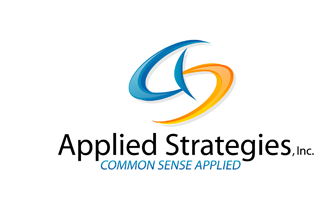Trusted AdvisorCo-creators of Good Governance
|
|
The legal profession has a notorious habit of interchangeably using business words with different meanings. A few of the more common "misspeaks" include:
- Goals and Objectives
- Revenue and Profit
- Vision and Mission
- Marketing and Advertising
- Leadership and Management
- Strategy and Tactics
There is a newer one that involves the leadership of their firms. The words are:
- Coach and Trusted Advisor
David Maister, the Dean of law firm thought leadership, in his book "The Trusted Advisor" explains the difference in the two terms as
"that while a coach can provide guidance and support in a specific area or task, a trusted advisor goes beyond that to build a deep, long-term relationship based on trust, empathy, and understanding. A trusted advisor not only offers expertise and advice but also acts as a confidant, problem-solver, and partner in the client's success."
That is not to say that coaching is not essential in the grand scheme of things, in the management of law practices generally, and in firms specifically. The focus of coaching is typically to provide guidance, feedback, and support in developing specific skills, behaviors, or strategies to improve performance. The coach helps the lawyer set goals, overcome obstacles, and achieve desired outcomes, often through a structured coaching process.
...the critical difference lies in the depth of the relationship and the broader scope of support and guidance... |
In essence, while both coaching and trusted advising play valuable roles in supporting law firm partners, the critical difference lies in the depth of the relationship and the broader scope of support and guidance provided by a trusted advisor compared to a coach. While not always the case, the liaison between coach and trusted advisor and the firm is usually at a different aspect of the firm's management.
The difference is an essential consideration when firms are seeking out a trusted advisor to work with their Managing Partner (leadership team).
To be clear, coaches can and do become trusted advisors.
Managing Partners and CEO's need to believe that the trusted advisor will put the needs of the firm above the needs of the trusted advisor themselves. For instance, if there is a better expertise or resource to assist with the firm's initiative, the trusted advisor will refer them and step aside. As Maister pointed out in his book,
"There is no greater source of distrust than advisors who appear to be more interested in themselves than in trying to be of service to the client. We must work hard to show that our self-orientation is under control."
An interesting point is that there is no professional accreditation for "trusted advisors". In contrast, for "coaches", there is a number of accreditations given through a broad range of Associations, including (not meant to be exhaustive):
Canada
- Professional Certified Coach (PCC) - offered by the International Coach Federation (ICF) chapters in Canada,
- Certified Professional Coach (CPC) - offered by the Adler Professional Coaching Program in Ontario, and
- Certified Health and Wellness Coach (CHWC) - offered by the Institute for Integrative Nutrition in Toronto.
United States
- The International Coach Federation (ICF) - offers three levels of certification: Associate Certified Coach (ACC), Professional Certified Coach (PCC), and Master Certified Coach (MCC),
- Certified Life Coach (CLC) - offered by the Certified Coaches Federation, and
- Certified Executive Coach (CEC) - provided by the Center for Executive Coaching.
While there are no fundamental designated accreditations for "trusted advisors", there are several evident traits they must possess in order to have the "street creds" with law firms, including:
- Common sense,
- Experience (credibility, and not just with the legal market),
- Loyalty,
- Trustworthy,
- Directness,
- Listening skills,
- Reliability,
- Confidentiality,
- Personable,
- Long term perspective,
- Broad thinker, and
- Risk taker.
What is the next logical step for the trusted advisor role in law firms? There is a small but growing trend of incorporating external directors into law firm management and executive committees that is gaining traction. While there are various reasons to consider such a step, the key ones include:
- Enhance a law firm's strategic direction and operational effectiveness,
- Diversity and inclusion in leadership roles,
- Better governance and accountability,
- Transparency and the need for robust and independent oversight, and
- Shifting market dynamics, particularly a closer identification with clients.
The leading early adopters of this trend include the United Kingdom, Australia, the United States, the Netherlands, and Singapore.
Firms looking at their governance with an eye toward the future should seriously consider this concept. Perhaps best captured by Rohini Nilekani when she stated,
"We cannot be mere consumers of good governance. We must be participants; we must be co-creators".
Who is Stephen Mabey?
Stephen Mabey is a CPA, CA, and the Managing Director of Applied Strategies, Inc. His credentials include:
- Fellow of the College of Law Practice Management (one of 19 Canadians - 276 Fellows);
- Author of Leading and Managing a Sustainable Law Firm: Tactics and Strategies for a Rapidly Changing Profession, and Key Performance Indicators An Introductory Guide;
- Over 25 years in a senior management role with Stewart McKelvey, a 220-lawyer, six-office Atlantic Canadian law firm;
- Over 15 years experience providing advice and counsel to small to mid-size law firms on a broad range of issues;
- A panelist and facilitator of the Managing Partner Information Exchange ("MPIE") at the annual Managing Partner Forum Leadership Conference held in Atlanta, Georgia, each May; and
- A group mailing list that circulates articles, directly and indirectly, impacts law firms and offers free mini-benchmarking surveys.
Stephen has been advising law firms for over 15 years on a wide range of issues, including - strategic action planning, leadership, understudy (succession) planning, compensation (Partner and Associate), organizational/governance structures, partnership arrangements, business development, capitalization of partnerships, partnership agreements, lawyer &staff engagement, marketing, key performance indicators, competitive intelligence, finance, mergers, and practice transitions.
Applied Strategies Inc.'s website contains references from clients describing the value of the services rendered https://www.appliedstrategies.ca/references.php.
Stephen can be reached by email - smabey@appliedstrategies.ca or by phone at 902.499.3895.


